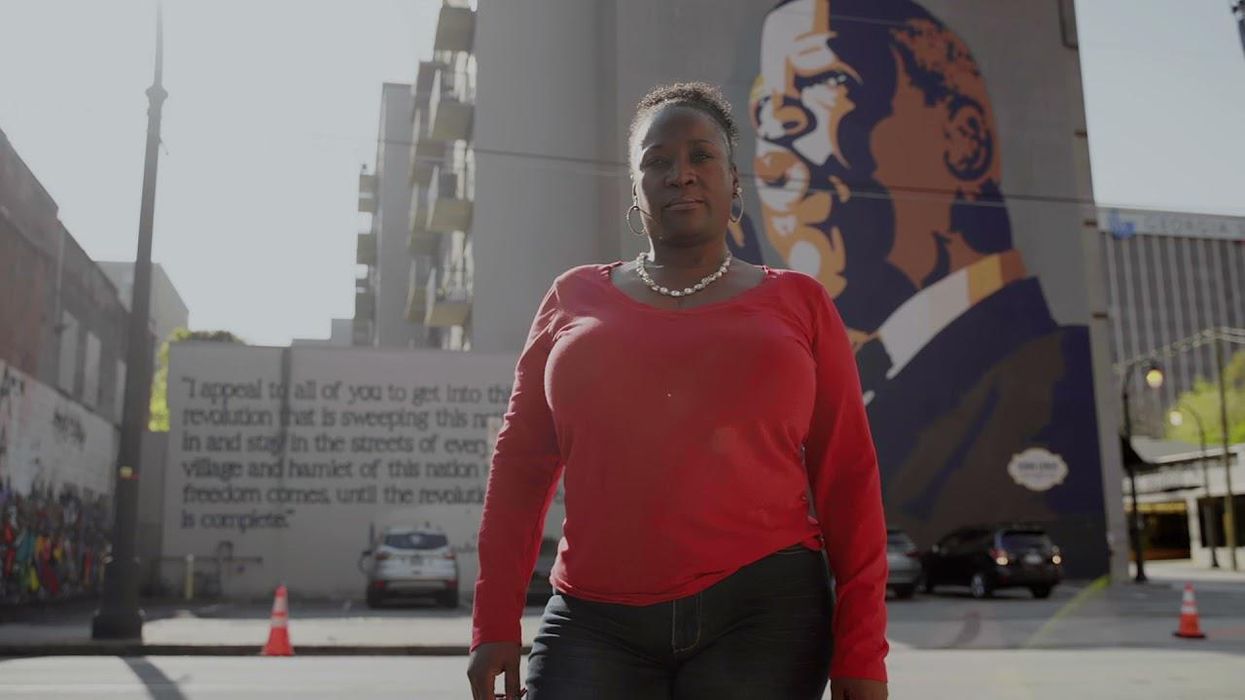Democracy reform advocates are taking to the airwaves once again in the hopes of bolstering the For the People Act's chances in the Senate.
A coalition of 15 labor groups, environmental advocates and progressive organizations launched a $1 million advertising campaign on Monday to promote the sweeping democracy reform legislation nationally and in targeted states.
As more than 360 restrictive voting bills are being considered in nearly every state, the campaign highlights how the For the People Act could protect voting rights and expand voting access nationwide. But with the filibuster still intact, passage requires getting all 50 Democratic senators and at least 10 of their Republican colleagues on board — a nearly impossible task.
The Democracy For All 2021 Action coalition created 30-second ads to run in three states. Each one features a voter sharing their story: a disabled veteran in Arizona, a hotel worker in Georgia and a civics teacher in New Hampshire.
The campaign focuses on these three states because they have seen a high volume of restrictive voting legislation, even by this year's standards. Arizona, Georgia and New Hampshire each have two Democratic senators, and all six have indicated support for S 1, as the For the People Act is known in the Senate. Kyrsten Sinema of Arizona, however, has presented a challenge to the legislation's passage by opposing elimination of the filibuster.
These ads will be broadcast on TV through Sunday and online through next Monday. In addition to the three select states, the ads will call on all senators to support the legislation through ad spots in D.C. and nationally digital media placements.
The For the People Act is expected to get its first Senate debate in May when the Rules and Administration Committee considers the legislation. House Democrats passed their version of the bill in March.
"Black and Brown voters came out in record numbers in the most secure elections we have ever experienced. But now, politicians who are afraid of the power of voters who do not look or think like them are doing everything they can to entrench their power in spite of the will of the people," said Derrick Johnson, president and CEO of the NAACP, one of the groups in the coalition. "This new rash of voter suppression is modern day Jim Crow, plain and simple. We must pass the For the People Act to protect civil rights and advance the fight for racial justice."
Another ad campaign supporting the For the People Act ran earlier in the year and aimed to put pressure on Democrats in purple districts.
The 15 groups involved in this latest ad campaign are the American Federation of Teachers, Center for Popular Democracy, Demos Action, Latino Victory Fund, League of Conservation Voters, MoveOn, NAACP, National Education Association, NextGen America, SEIU, Sierra Club, Supermajority, UFCW, UNITE HERE and the Working Families Party.




















Trump & Hegseth gave Mark Kelly a huge 2028 gift